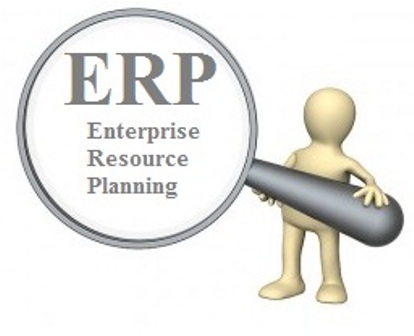How an EdD Program Enhances Leadership Skills for Business Managers

Increasingly, business executives are leveraging doctorates in education to refine strategic thinking and organizational contributions. Here’s how the doctoral degree aids higher-order thinking in dynamic environments.
Within a business environment characterized by rapid change alongside more sophisticated organizational demands, traditional tools used to educate managers may no longer be sufficient. Managers today not only need technical competence but, more importantly, a greater understanding of human systems, strategic leadership, and transformative decision-making.
Herein lies the reason why educational doctorates, especially the Doctor of Education (Ed.D.), are gaining popularity among business professionals who seek to future-proof their leadership abilities. Historically tied to schools.
However, EdD degrees are becoming cross-disciplinary programs that equip business managers with practical tools relevant to the business environment. Their value is best recognized in how they bring theory into practice with insightful leaders across industries, requiring constant learning and adaptability.
Building Reflective Practice into Decision-Making
Contemporary business leaders are under pressure to make quick and strategic decisions, often with incomplete information or in unpredictable scenarios. Reflective practice, one of the key skills built on an EdD program, is the practice of critically examining decisions, results and assumptions. It doesn’t involve merely stopping and thinking over what went right or wrong.
Reflective leadership fosters a continuous feedback cycle of analysis, learning and application, enabling managers to become more self-aware and skilled at navigating complex systems. It also promotes a style of leadership that considers broader societal and organizational impacts rather than focusing narrowly on short-term outcomes.
In reality, project/program managers and business leaders who complete an EdD build frameworks for discerning root causes of problems in the workplace, judge team dynamics more holistically, and respond with solutions that harmonize human factors with operational targets. As a result, these skills turn reflective practice from academic theory into a habit they practice every day.
Improving Communication Across Organizational Levels
Effective, clear communication remains a key to successful management. Yet it is not simply a question of speaking or writing well—it is a matter of aligning stakeholders, inspiring teams, and using conflict constructively. Most business leaders undervalue the contribution that education-based training has to offer in enhancing these capabilities.
Managers in an EdD program learn theories of leadership, study case studies, and perform applied research that uncovers how language, power and perception overlap in working environments. These understandings foster more reflective communication that accommodates both hierarchical frameworks and diverse team environments.
Even when presenting a vision statement or a performance review, leaders trained under EdD frameworks tend to be more empathetic, listen more actively, and communicate more clearly. As a result, they communicate more effectively, particularly within settings where collaboration and common objectives are crucial.
Research Literacy for Evidence-Based Leadership
Another key area in which EdD training benefits business managers is research literacy, encompassing the understanding, assessment and application of findings from both scholarly and industry research. In today’s data-saturated environment, leaders must go beyond experience and intuition when making decisions, instead basing them on evidence and data. It does not involve becoming a part-time or even full-time researcher.
Instead, it consists of developing the skill to pose proper questions, evaluate trustworthy sources and interpret findings relevant to business problems. From assessing employee engagement approaches to implementing change initiatives, evidence-based leadership utilizes both qualitative and quantitative research methods.
An EdD bridges academic theory with application. Managers learn to see past surface trends and get beneath the data for a purpose. That aids in more effective strategy development, more effective performance measurement and more open decision-making processes—all areas where there is greater demand in today’s management.
Strategic Leadership with a Human-Centered Approach
One distinguishing characteristic of EdD training, as compared with more conventional business degrees, is its people-focused philosophy regarding leadership. There is no exclusive emphasis on profitability or market share, but rather on how individuals perceive change, learning and development within organizations.
To business managers, this equates to leading with empathy, as well as aligning employee development with company goals. Issues typically studied in EdD programs—such as organizational learning, systems thinking and ethical leadership—encourage managers to view business from a broader perspective.
This shift in strategy is particularly beneficial in leading hybrid teams, guiding DEI programs and driving innovation through inclusive methods. It prepares leaders not only for what their organization does but also for how it adapts and maintains itself within a dynamic context.
Nurturing Ethical Business Conduct within a Complex Business World
With increasing public scrutiny surrounding corporate conduct, ethical leadership has become a hallmark of successful businesses with enduring strength. Ethical considerations are frequently integrated into EdD programs as a central theme, preparing leaders to make decisions with moral complexity, clarity and purpose.
This does not involve reactive crisis mode, as it adopts a forward-thinking approach to integrity, justice and responsibility, framing these as continuous rather than legalistic tasks.
For business leaders, integrating ethical frameworks into an EdD course ensures more principled decision-making, considering both short-term profit and long-term reputation. Whether leading diversity programs, allocating resources or navigating stakeholder relations, an ethical foundation ensures that leaders are not only successful but also trusted.
Navigating Organizational Change with Learning and Adaptation
In an age characterized by digital upheaval, worldwide uncertainty and changing workforce expectations, organizational change is an ongoing phenomenon. One of the virtues of EdD training is its emphasis on how learning processes facilitate change.
Business leaders learn not to view change as a threat, but as a cycle that can be shaped through a clear vision, inclusive conversations and learning models adapted to change.
What it signifies is using tools of educational project leadership, such as action research, participatory planning and ongoing feedback, to address actual business problems. Managers who internalize these tools are well-positioned to facilitate employees through change, align departments with shifting objectives and implement innovations without estranging core teams. The outcome is not simply change management but change leadership.
Long-term Career & Organizational Impacts
When the effects of an EdD program don’t stop at personal development, they often extend into tangible contributions to the organization, as well. Those who are trained through these programs are generally better prepared to manage transformation projects, develop strong teams and participate in a culture of ongoing improvement.
Over time, organizations profit from informed, thoughtful and aligned business leadership grounded in educational and ethical principles. Doing so has a direct impact on not just internal business processes but customer satisfaction, reputation and trust with stakeholders. For business managers, an EdD can also open doorways into consultancy, executive directorship or cross-sector policy and workforce development roles. It’s an investment in a skill set that’s more relevant as work becomes increasingly interconnected across disciplines and sectors.
Ultimately, then, the EdD is a leadership accelerator, one that ties insightful educational thinking to practical business application. As more organizations prioritize learning agility and systemic thinking, the value of this degree continues to increase.














